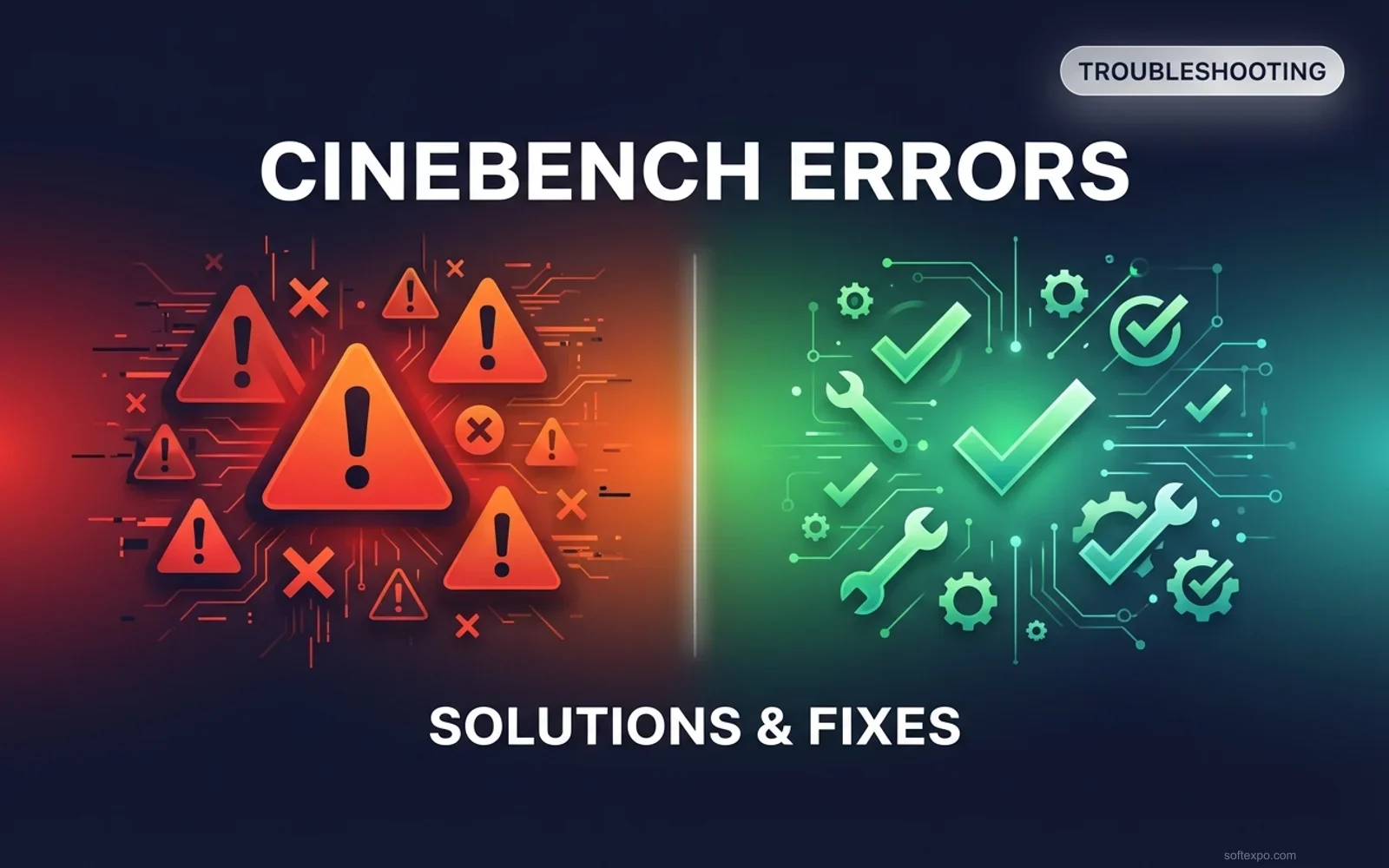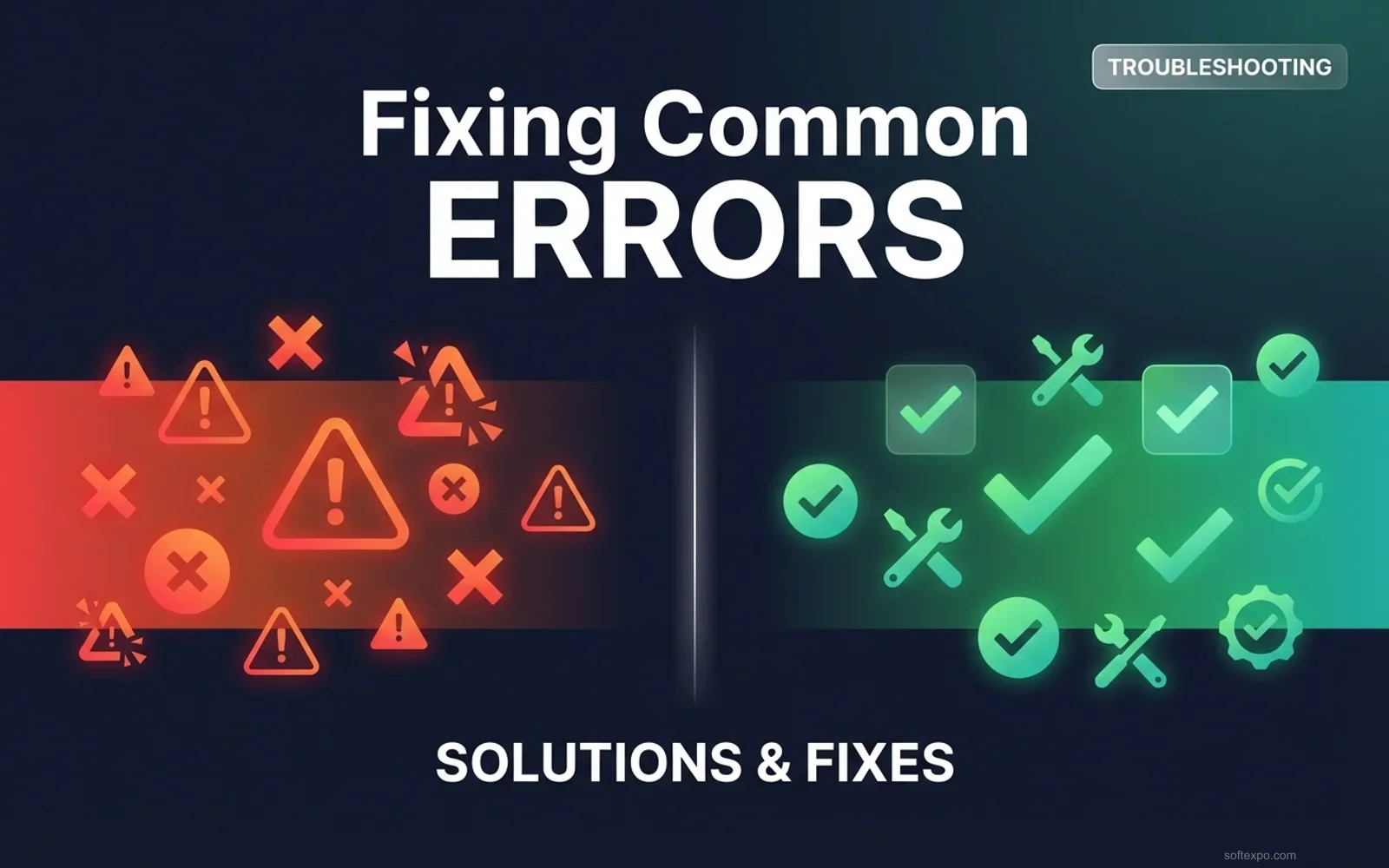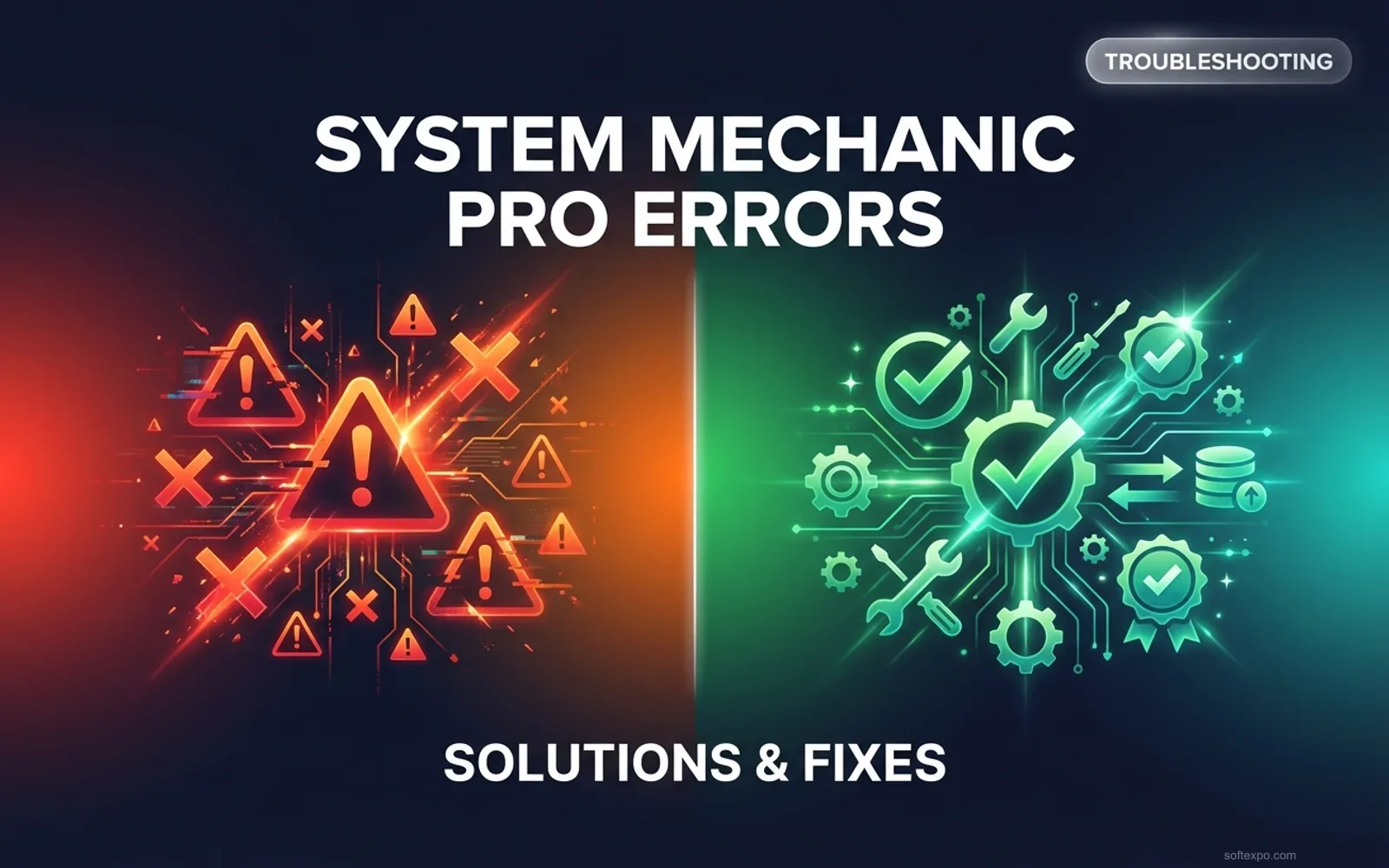Description
CINEBENCH is the industry-standard benchmarking tool used to evaluate your computer's hardware capabilities, but like any intensive software, it can encounter errors that halt testing or invalidate results. These issues often stem from unstable hardware settings, missing system dependencies, or background process interference rather than the software itself. This guide covers the most effective troubleshooting steps for the latest versions, including Cinebench 2024 and R23, ensuring you can benchmark your system accurately.
Common Errors
- Application Error 0xc0000142: A launch failure typically caused by missing system files or library corruption.
- Missing MSVCP140.dll / VCRUNTIME140.dll: Indicates that essential Microsoft Visual C++ libraries are not installed.
- System Crash/Restart During Render: Usually points to unstable overclocking, overheating, or insufficient power supply.
- Out of Video Memory: Specific to Cinebench 2024, occurring when the GPU VRAM is exhausted.
- Abnormally Low Scores: Results that do not match hardware specs, often caused by thermal throttling or background tasks.
Fix 1: Application Error 0xc0000142
This error code usually appears when the application fails to initialize properly due to corrupted system files or conflicts with other software.
- Open the Windows Start menu and type cmd.
- Right-click "Command Prompt" and select Run as administrator.
- Type the command
sfc /scannowand press Enter. - Wait for the process to complete (it may take 10-15 minutes) and repair any corrupted files.
- Restart your computer and try launching Cinebench again.
Fix 2: Missing MSVCP140.dll or VCRUNTIME140.dll
These errors occur when the specific Microsoft Visual C++ Redistributable packages required by Cinebench are missing from your Windows installation.
- Visit the official Microsoft support page for "Latest supported Visual C++ Redistributable downloads".
- Download the vc_redist.x64.exe file (for 64-bit Windows).
- Double-click the downloaded file to run the installer.
- Check the box to agree to terms and click Install.
- Once finished, restart your PC to ensure the libraries are registered correctly.
Fix 3: System Crash or Restart During Render
If your PC shuts down or reboots while running the benchmark, it is almost always a hardware stability issue caused by aggressive overclocking or overheating.
- Restart your computer and enter the BIOS (usually by pressing Del or F2 during boot).
- Reset BIOS settings to Optimized Defaults (often F5 or F9) to remove any unstable CPU or RAM overclocks.
- Disable "XMP" or "EXPO" profiles temporarily to rule out memory instability.
- Save changes and exit (F10).
- Monitor CPU temperatures using software like HWMonitor; if temps hit 100°C immediately, check your CPU cooler mounting.
Fix 4: Out of Video Memory (Cinebench 2024)
This error appears during the GPU benchmark in Cinebench 2024 when your graphics card lacks sufficient VRAM to load the render scene.
- Close all other applications, especially web browsers and creative software like Photoshop.
- Right-click the desktop and select Display settings.
- Scroll down to "Graphics" or search for Game Mode and turn it On to prioritize the benchmark.
- If the error persists, increase your Windows Page File: Search for "Advanced System Settings", click Settings under Performance, go to the Advanced tab, and click Change under Virtual Memory.
- Set a custom size (e.g., 16000 MB) to offload VRAM data to your drive.
Fix 5: Abnormally Low Scores
Low scores often result from background processes stealing CPU cycles or Windows power plans restricting performance.
- Close all background apps from the System Tray (bottom right corner).
- Press Ctrl + Shift + Esc to open Task Manager.
- Go to the Details tab, right-click Cinebench.exe, and select Set Priority > High.
- Open Windows Settings, search for "Power Plan", and select High Performance.
- Run the benchmark again without moving the mouse or opening other windows.
Prevention Tips
- Update Drivers Regularly: Keep GPU drivers and motherboard chipset drivers current to avoid compatibility issues.
- Monitor Thermals: Ensure your PC has adequate airflow and clean dust filters to prevent thermal throttling.
- Stable Settings: Only use stable, stress-tested overclocking profiles for benchmarking.
- Clean Boot: Periodically restart your system before running heavy benchmarks to clear memory leaks.
When to Contact Support
If you continue to experience crashes even at stock BIOS settings, you may have faulty hardware. Professional support is recommended if your system crashes during light tasks or if you see visual artifacts (colored lines/flashes) before a crash, which indicates a dying GPU. Before contacting support, gather your system specifications (CPU, GPU, RAM model) and a log of the temperatures recorded during the crash.





